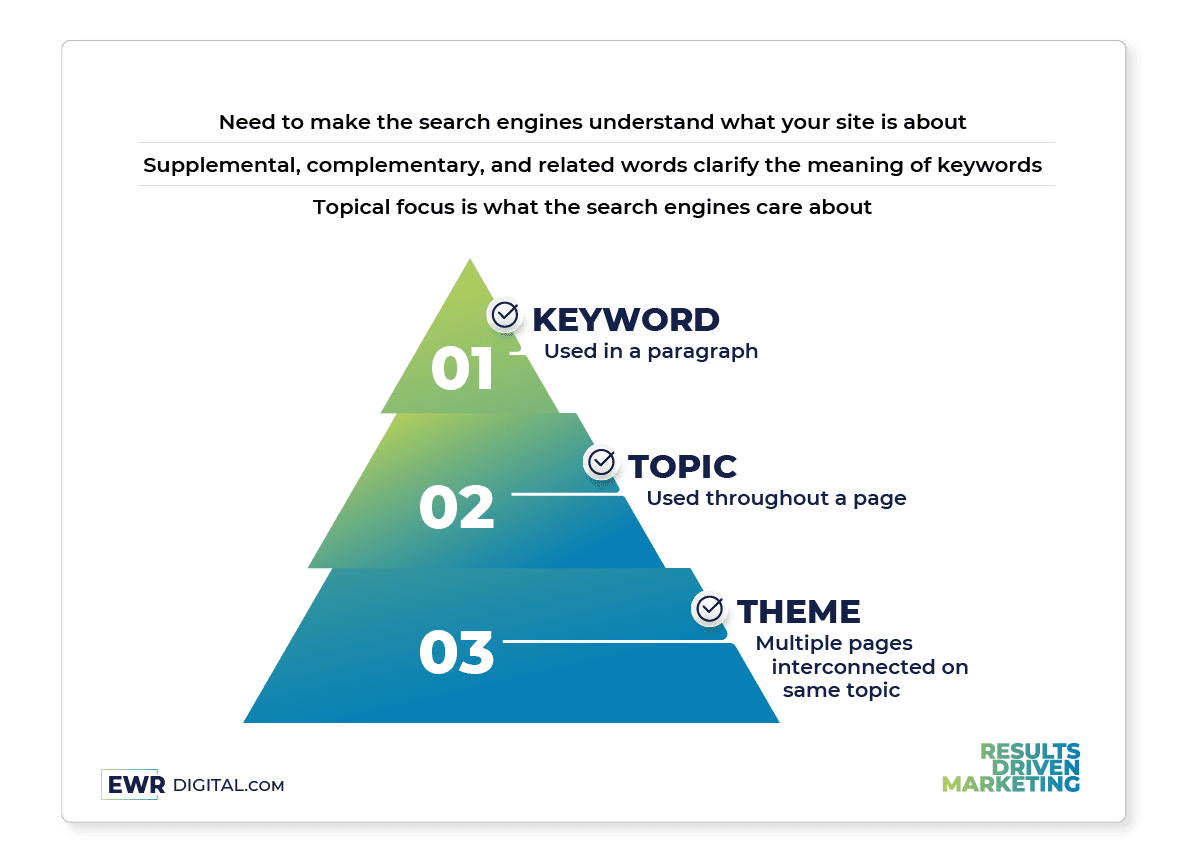
Well, back in the wild west days of the internet (we’re talking late 90s), search engines were like those old librarians who’d shuffle through card catalogs to find you a book. Only instead of books, they were hunting for web pages. And guess what? They needed some clues to figure out which pages were relevant to your search.
Enter: keywords! These were like little breadcrumbs scattered across the web that told search engines what each page was about. So, if you wanted your site to pop up when someone searched for “cute cat videos” (let’s be real, who doesn’t?), you’d better make sure those words were sprinkled throughout your site like catnip.
But here’s the thing: in those early days, it was kind of a free-for-all. You could stuff your site with keywords like a Thanksgiving turkey and rank like nobody’s business. Quality? Who needs it! It was all about quantity.
Then, the search engines got smart. They realized that just because a page said “cute cat videos” a million times didn’t mean it was actually about cute cat videos. So, they started getting picky. They wanted quality content, not keyword-stuffed gibberish.
And that’s when keyword research really started to take off. People realized they needed to dig deeper, find out what their audience was actually searching for, and then craft their content around those keywords. It became less about gaming the system and more about providing value to users.
Fast forward to today, and keyword research is like a science. There are tools galore to help you uncover those golden keywords that’ll send your site soaring up the search rankings. But at its core, it’s still about understanding your audience, knowing what they’re searching for, and delivering the goods.
So, there you have it, the humble beginnings of keyword research. From the wild west of the internet to the sophisticated world of SEO, it’s been quite the journey. And who knows where it’ll go next? All I know is, those cute cat videos aren’t gonna watch themselves!
Unraveling the SEO Maze: A Comprehensive Guide to Keyword Mapping
Keyword mapping stands as a cornerstone in the realm of Search Engine Optimization (SEO), providing a strategic roadmap for optimizing each page on your website. In this guide, we’ll dissect the components, benefits, and implementation tips of keyword mapping, empowering you to navigate the complexities of SEO with precision.
Little-known Facts: Keyword Research
-
Keyword Volume: On average, about 50% of all searches on Google are long-tail keywords, meaning they consist of three or more words. These long-tail keywords often have less competition and can be more targeted.
-
Keyword Length: The average length of a search query on Google is around 3-5 words. This emphasizes the importance of optimizing for longer, more specific keywords.
-
Mobile Searches: Over 60% of Google searches now come from mobile devices. This trend highlights the importance of optimizing for mobile-friendly keywords and ensuring your website is mobile-responsive.
-
Voice Search: With the increasing popularity of virtual assistants like Siri, Alexa, and Google Assistant, voice search is on the rise. Around 20% of all searches on Google are now voice searches. Voice queries tend to be more conversational and longer than typed searches, so optimizing for natural language queries is crucial.
What is Keyword Research
So, you know when you’re trying to find something online? Like, maybe you’re searching for the best pizza place in town or looking for tips on how to train your puppy? Well, that process starts with keywords.
Keywords are those magic words you type into a search engine like Google or Bing to find what you’re looking for. They’re like secret codes that unlock the treasure trove of information on the internet. Cool, right?
Now, here’s where keyword research comes into play. It’s like being a detective, but instead of solving crimes, you’re uncovering the words and phrases people are typing into search engines. Why? Because when you know what people are searching for, you can tailor your website or content to match those queries. It’s like speaking their language!
But hold up, it’s not just about throwing any old words onto your website. Nope, you gotta be strategic. You want to find keywords that have a decent amount of people searching for them but aren’t too competitive. It’s like striking a balance between popularity and achievability.
There are some cool tools out there that can help with this detective work. You’ve got your trusty keyword research tools like Google’s Keyword Planner, SEMrush, Ahrefs, and more. They’ll show you things like how often a keyword is searched for and how tough it’ll be to rank for it. Super handy, right?
Oh, and remember, it’s not just about finding individual keywords. You also want to think about the bigger picture, like keyword themes or topics. That way, you can create content that covers a range of related keywords, making your website a one-stop-shop for all things awesome in your niche.
So, that’s keyword research in a nutshell. It’s part detective work, part strategic planning, and a whole lot of fun once you get the hang of it. Just remember, the internet is your oyster, and keywords are the pearls that’ll help you shine bright like a diamond (or at least rank high on Google).
Components of Keyword Mapping:
1. Target Keywords:
Identify a comprehensive list of target keywords that align with your business goals. These keywords should resonate with the products, services, or topics you want your website to be associated with in search results.
2. Content Inventory:
Conduct a thorough inventory of your existing content, including web pages, blog posts, and product pages. This forms the foundation for mapping keywords to specific pages.
3. Page-to-Keyword Assignment:
For each page in your content inventory, assign one or more target keywords based on the content’s theme, purpose, and relevance. This step ensures alignment between user search intent and your page content.
4. Keyword Research:
Whether creating new content or optimizing existing pages, conduct keyword research to identify additional relevant keywords. This research unveils variations, long-tail keywords, and terms actively searched by users.
5. Competitor Analysis:
Analyze the keywords your competitors are targeting. This provides valuable insights into potential keywords you might have overlooked and enhances your understanding of the competitive landscape.
Benefits of Keyword Mapping:
1. Avoiding Cannibalization:
Keyword mapping prevents keyword cannibalization by assigning specific keywords to each page, eliminating confusion for search engines and ensuring clarity on the most relevant page for specific queries.
2. Improved Relevance:
Matching keywords with specific pages enhances the overall relevance of your content. Search engines value relevance, and users are more likely to find the information they seek.
3. Targeted Optimization:
Keyword mapping guides the optimization process. Each page can be optimized for its assigned keywords, including meta tags, headers, content, and other on-page elements.
4. Enhanced User Experience:
A well-mapped site provides a more seamless user experience. Users can navigate easily, finding information aligned with their search intent and enhancing overall satisfaction.
5. Clear Content Strategy:
Keyword mapping contributes to a clear content strategy. It helps identify content gaps, plan new content creation, and align your SEO efforts with broader business goals.
6. Effective Reporting and Analysis:
Assigning specific keywords to each page facilitates tracking page performance in search engine rankings. This leads to more accurate reporting and analysis of your SEO efforts.
Implementation Tips:
1. Create a Spreadsheet:
Organize your keyword mapping efforts using a spreadsheet. Include columns for page URLs, target keywords, secondary keywords, and any other relevant information to streamline the process.
2. Regular Updates:
Keep your keyword mapping document up to date. As your content evolves, update keyword assignments to reflect changes in strategy and business focus.
3. Align with Business Goals:
Ensure your keyword mapping aligns with broader business goals. Prioritize products or services accordingly, adjusting your keyword strategy to reflect business priorities.
4. Review and Adjust:
Regularly review and adjust your keyword mapping based on performance metrics, changes in search trends, and shifts in business priorities. Stay agile to maintain optimal results.
By investing time and effort into keyword mapping, SEO experts can create a well-optimized website that not only ranks higher in search engine results but also delivers a more relevant and satisfying experience to users. Unravel the SEO maze with strategic keyword mapping, and watch your website soar to new heights.
Real World Examples
HubSpot is all about marketing and sales, right? Well, they swear by keyword research for their success. They dig deep to find those golden keywords that their audience is searching for. Then, they whip up killer content that matches those keywords like a glove. It’s like they’re mind readers, predicting what their audience wants before they even know it themselves! And guess what? It works like a charm, helping them grow and shine in the digital marketing world. (Source: HubSpot’s Blog)
“SEO is an evolving science. The art of keyword research is what makes the difference between success and failure.” -Rand Fishkin, the co-founder of Moz
Moz is like the SEO guru of the internet, right? Well, they’re all about that keyword research game. They dive deep into what people are searching for and then serve up the juiciest, most helpful content on those topics. It’s like they’ve cracked the code to getting their articles right at the top of Google’s search results. And you know what? It’s not just good for them; it’s helping tons of folks learn about SEO too. Win-win again! (Source: Moz’s Blog)
Ah, Neil Patel, the marketing wizard! He’s all about those long-tail keywords that really hit the mark. He digs deep into what people are asking on the internet and then crafts these super helpful articles that answer all our burning questions. It’s like he’s our personal marketing guru, giving us all the tips and tricks we need to succeed online. And you know what? It’s working like a charm for him too. (Source: Neil Patel’s Blog)
These folks are just killing it with keyword research, and they’re proof that understanding what your audience wants is the key to success in the digital world!

